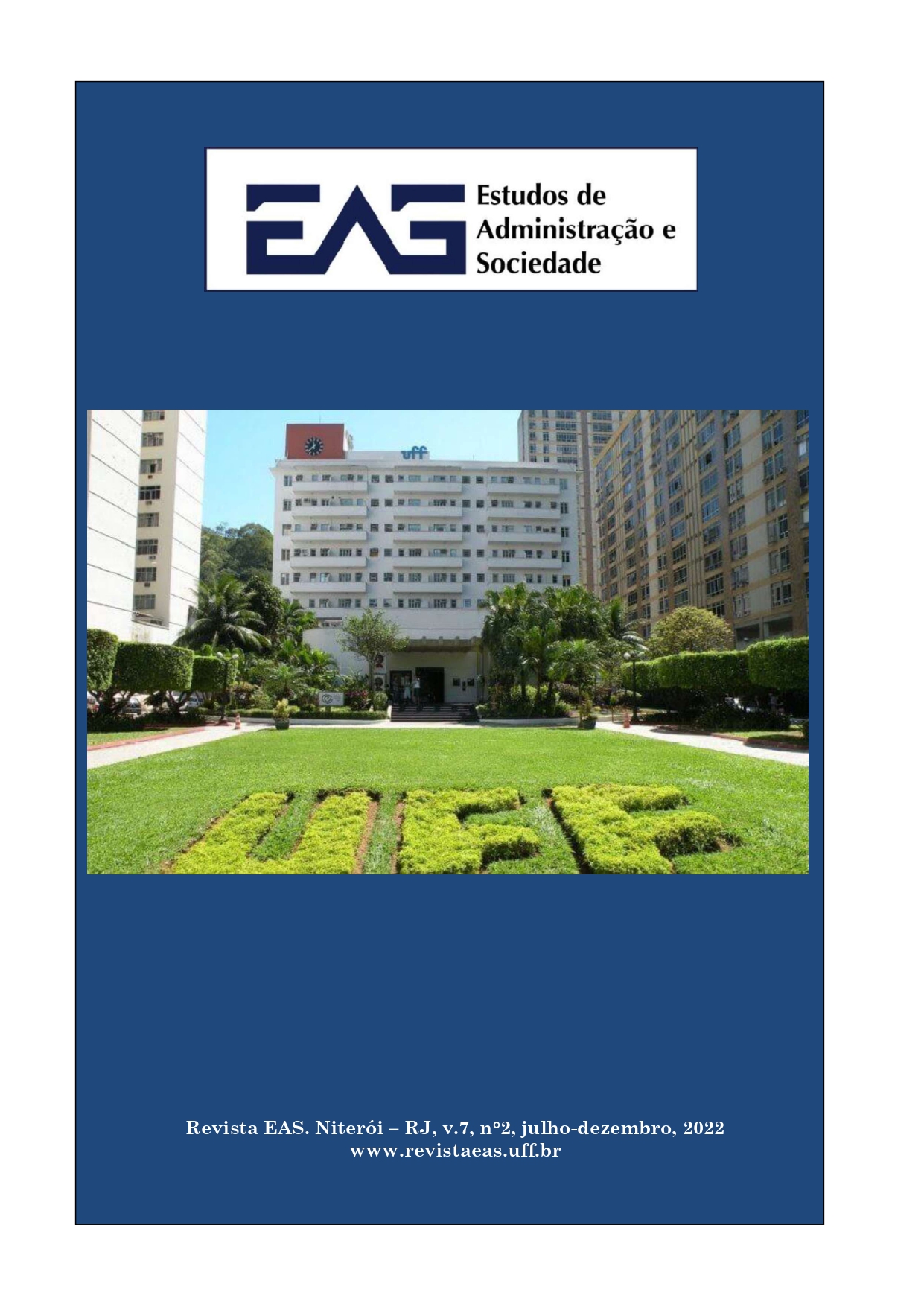Gestão de resíduos odontológicos: desafios de implementação de um sistema de logística reversa
DOI:
https://doi.org/10.22409/eas.v7i2.56276Abstract
The present research aims to investigate the challenges of reverse logistics of solid waste in dental activity in the Middle Canindé Region, state of Piauí. As for the methodological aspects, it has a qualitative and descriptive nature. Data collection took place in a secondary (documentary) and primary source, through the application of a semi-structured interview script with subjects responsible for the management of dental solid waste. Bardin's (2016) content analysis was used in data analysis. As for the results, five dimensions were categorized: segregation; packaging; collection and storage; transport and treatment; and final disposal of dental waste. It was identified, therefore, that the main challenges associated with the implementation of the dental solid waste management system are the costs of this operation; as well as the scarcity of companies specialized in the reserve logistics of these wastes; and absence of a Health Service Waste Management Plan. The present research contributes to the scientific advance regarding the challenges of implementing Reverse Logistics applied to dental waste; as well as, it points out aspects that can help to improve public policies aimed at the management of these wastes.
Downloads
Downloads
Published
Versions
- 2022-12-27 (3)
- 2022-12-27 (2)
- 2022-12-26 (1)
Issue
Section
License
Autores que publicam nesta revista concordam com os seguintes termos:
- Autores mantém os direitos autorais e concedem à revista o direito de primeira publicação, com o trabalho simultaneamente licenciado sob a Licença Creative Commons Attribution que permite o compartilhamento do trabalho com reconhecimento da autoria e publicação inicial nesta revista.
- Autores têm autorização para assumir contratos adicionais separadamente, para distribuição não-exclusiva da versão do trabalho publicada nesta revista (ex.: publicar em repositório institucional ou como capítulo de livro), com reconhecimento de autoria e publicação inicial nesta revista.
- Autores têm permissão e são estimulados a publicar e distribuir seu trabalho online (ex.: em repositórios institucionais ou na sua página pessoal) a qualquer ponto antes ou durante o processo editorial, já que isso pode gerar alterações produtivas, bem como aumentar o impacto e a citação do trabalho publicado (Veja O Efeito do Acesso Livre).

